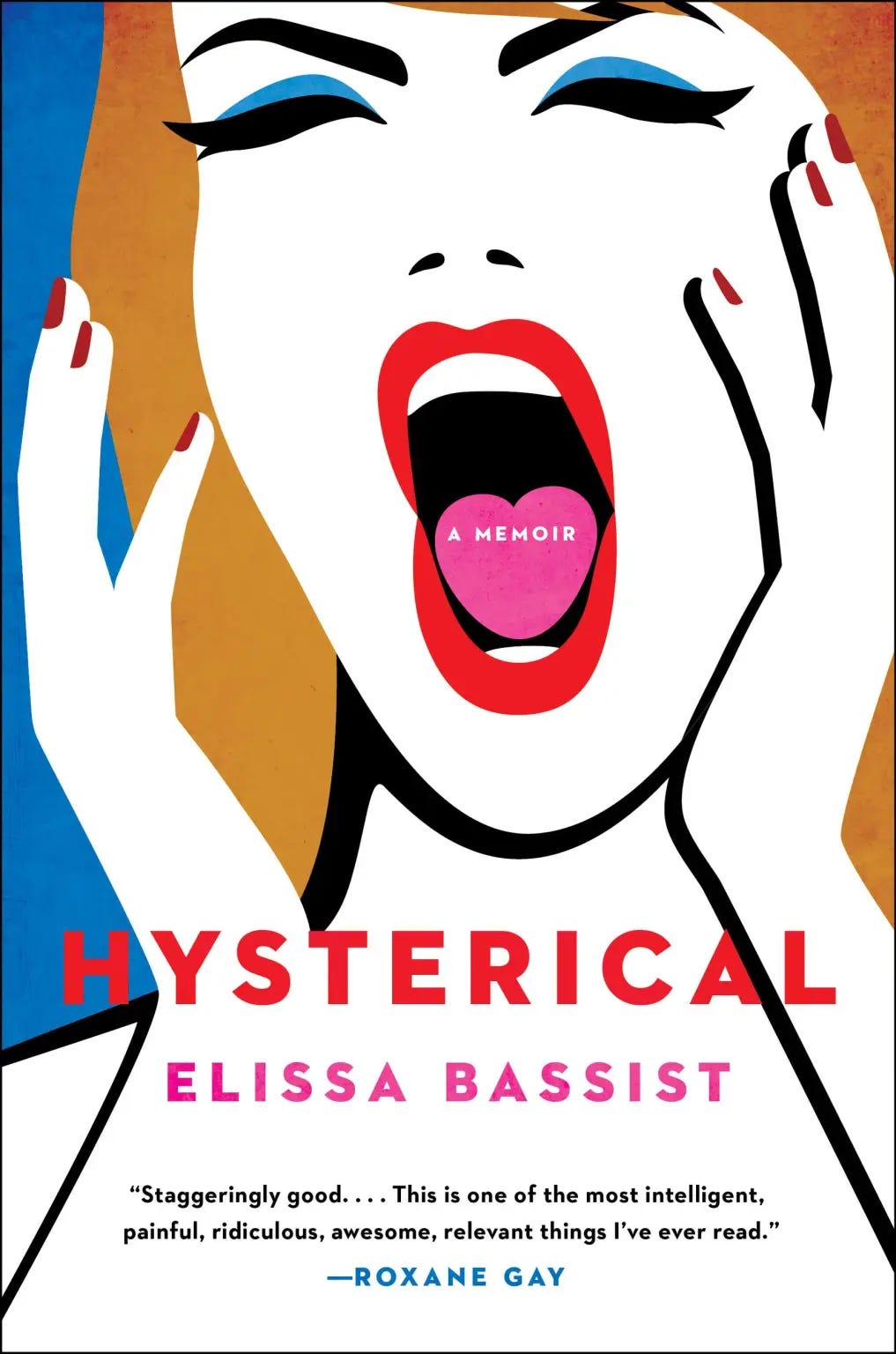A few years ago, a friend of mine had her gallbladder removed after suffering (for months) with gallstones. She recounted her experience of going to doctor after doctor who kept telling her that her symptoms were likely those of a panic attack, and that she should seek psychiatric treatment. It wasn’t until the pain was so unbearable and she ended up in the hospital before they realized her gallbladder had to be immediately removed. When my friend told me about this, I nodded my head along, thinking I have definitely been there.
I remembered this story when I first started reading
‘s debut memoir, Hysterical, last year. I know many women (including me) who have been dismissed by male doctors - and most men in general - as dramatic, sensitive, or, as a throwback, hysterical.In her memoir, Elissa details her own experience of not being taken seriously - medically, professionally, sexually - and so eloquently (and hilariously) points out the very real and tangible side effects of muting an entire sex.
“It’s a survival tactic: forget or die. So we suck it up - every day, all day - and don’t let it get to us and don’t let it get to us and don’t let it get to us, for so long, for so extremely long, that our bodies churn it back up, not in thoughts or in tears but in herniated discs.”
Sounds all too familiar.
She begins the memoir on a quest to solve the mystery of her blurred vision after the 2016 election, and she ends it with a startling clear-picture take of the enforced censorship and self-imposed censorship of women. She weaves together a narrative detailing all of the ways in which she is muted by fear or by shame or by force, and in the process, uses humor to sharpen the blow.
This book made me ask myself questions that I hadn’t before been able to articulate - how many times have I kept quiet, believing that it was best to just move forward? How hard had I tried my whole life to not be difficult or cause others inconvenience?
“Speak softer. Moan louder. Be sure. Don’t be shy. Don’t talk back. Don’t say this (or that). Don’t draw attention. Don’t be difficult. Be pleasant. Be who everyone needs you to be.”
I’ve heard variations of this internal monologue from almost every woman I know - and I recognize it within myself. More often than not, the fear of retribution for saying the wrong thing overrides the desire for me to share what’s on my mind - no matter how prepared I am or how much conviction I possess.
Because, as Elissa points out, if a woman does share what is on her mind, either a) another man will take credit for it, b) it could lead to her untimely demise, or c) she will be dismissed entirely. Even when recounting past relationships, Elissa faced backlash about being called a “Crazy Psycho Bitch” for daring to have feelings about those who wronged her.
What Elissa writes about in this book is not new. She makes that fact clear, quoting other female authors like bell hooks, Adrienne Rich, and Joan Didion; sharing years of medical studies; citing dozens of newspaper columns and magazine articles. The most compelling aspect of the memoir is not necessarily the information - it’s the ride we took to get there, and the familiarity of the scenery.
My mother was recently hospitalized for a bulging disc in her back, requiring surgery. While there, she met a nurse who she instantly felt connected to - something she desperately needed, considering she was in a never-ending pain spiral and unable to see the light at the end of the tunnel. The nurse spoke to my mom about the significance of my mom advocating for herself - especially when it came to her pain medication.
“It doesn’t matter if you wail, or scream, or hurt someone’s feelings. You have to speak up - otherwise no one will help you.”
Elissa’s message echoes this message - by using your voice and being loud, the threat of violence or retribution is very real; but, not using your voice is the biggest betrayal of them all.






!!!!!!!!!!!!!!!!!!!!!!!!!!!